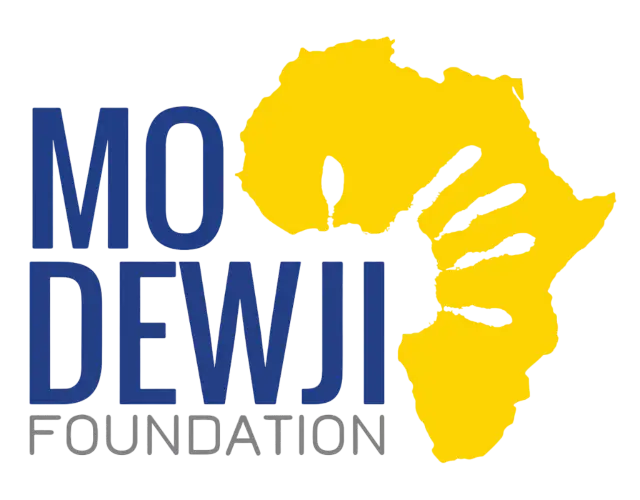Our Work In Improving Access to Water
The Mo Dewji Foundation supports the Ministry of Water’s WASH initiatives to ensure every Tanzanian has access to safe drinking water. Our program focuses on sustainable water infrastructure, improved sanitation, and hygiene education for long-term community health benefits.
SPOTLIGHT
Providing Clean, Safe Water in Singida
The Mo Dewji Foundation works in partnership with the Singida Urban Water Supply and Sanitation Authority (SUWASA) and Rural Water Supply and Sanitation Agency (RUWASA) to ensure clean and safe drinking water is accessible to Tanzanians nationwide.
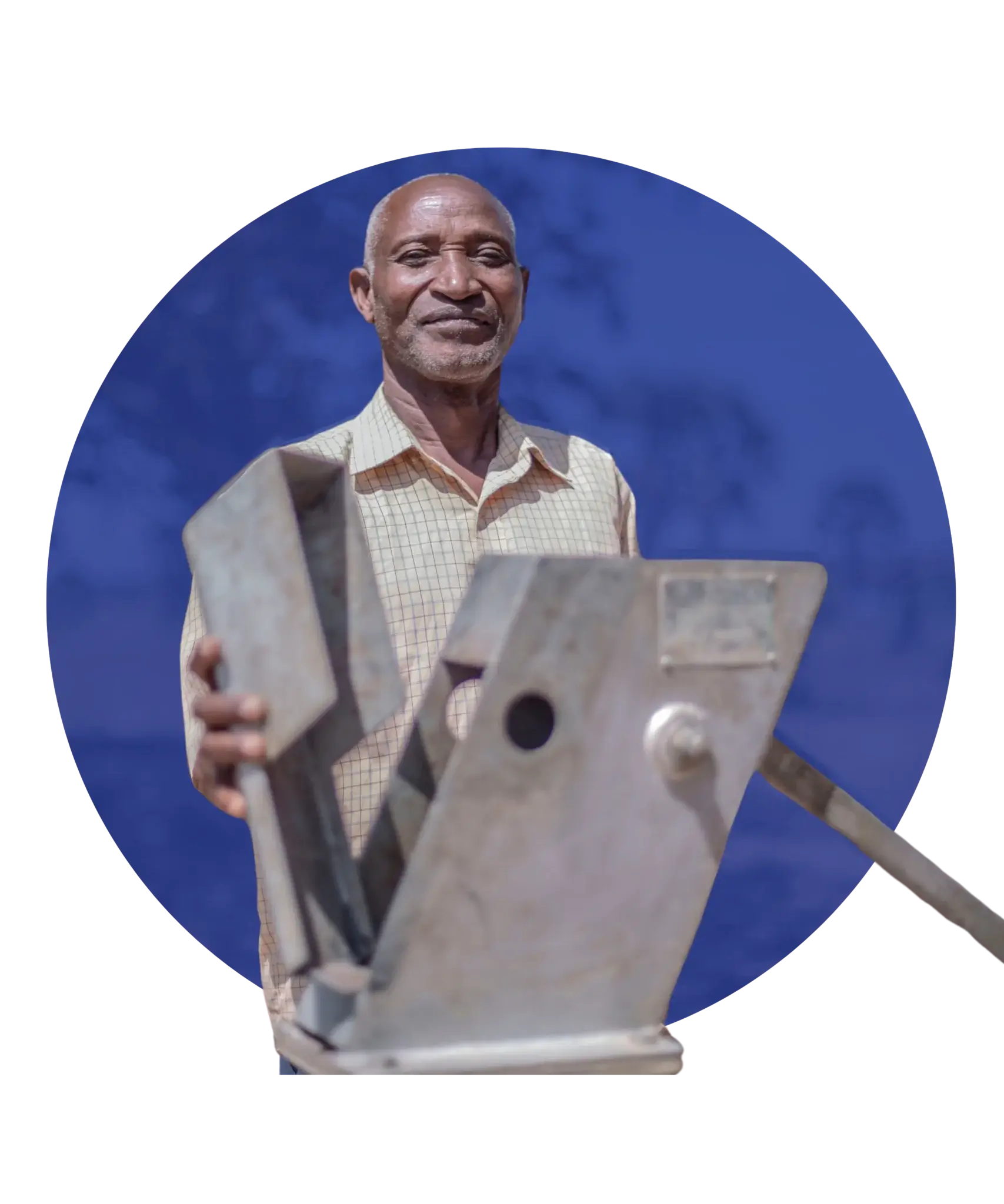
Under the supervision of the Ministry of Water, MDF recently conducted an audit of its 34 existing water wells, rehabilitating 18 and treating 4, to ensure that the infrastructure continues to serve its target communities. By 2025, MDF plans to rehabilitate 50 additional wells, which will improve the lives of over 15,000 Tanzanians.
MDF also plans to construct 50 new wells utilizing a village-centric approach: identifying existing water sources and finding ways to sustainably extend distribution to all communities within each village they target.
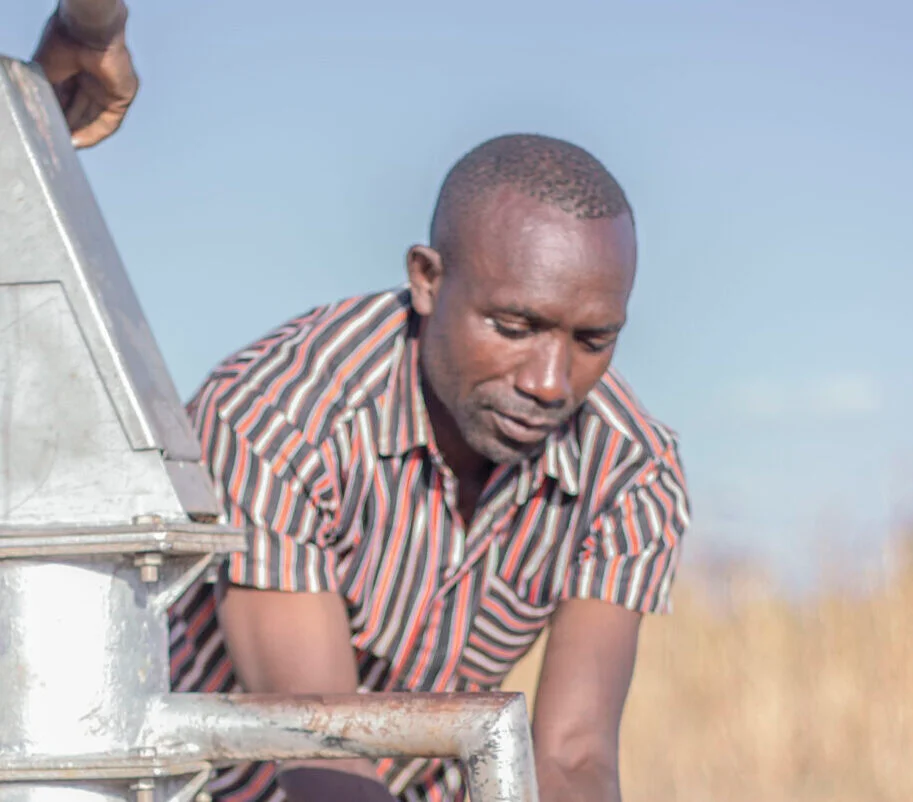
“I am out of words, for more than 13 years the well has not been functioning and so we are full of joy to see water flowing from the well. God bless you and may He give you more resources to continue providing sustainable water access in Singida MC.”
- Abraham Ipini
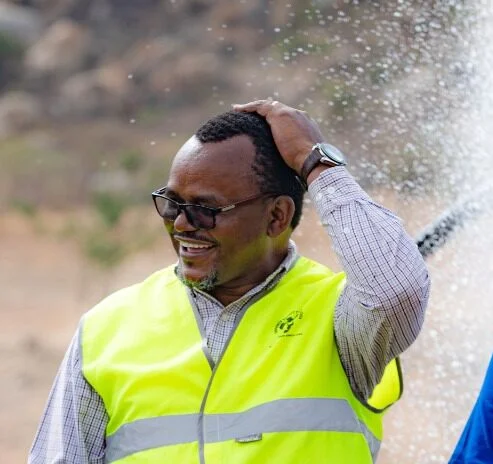
“I greatly applaud this foundation for their support to the communities in Tanzania. This will enable the unprivileged to acquire basic necessities of life.”
Eva Peter
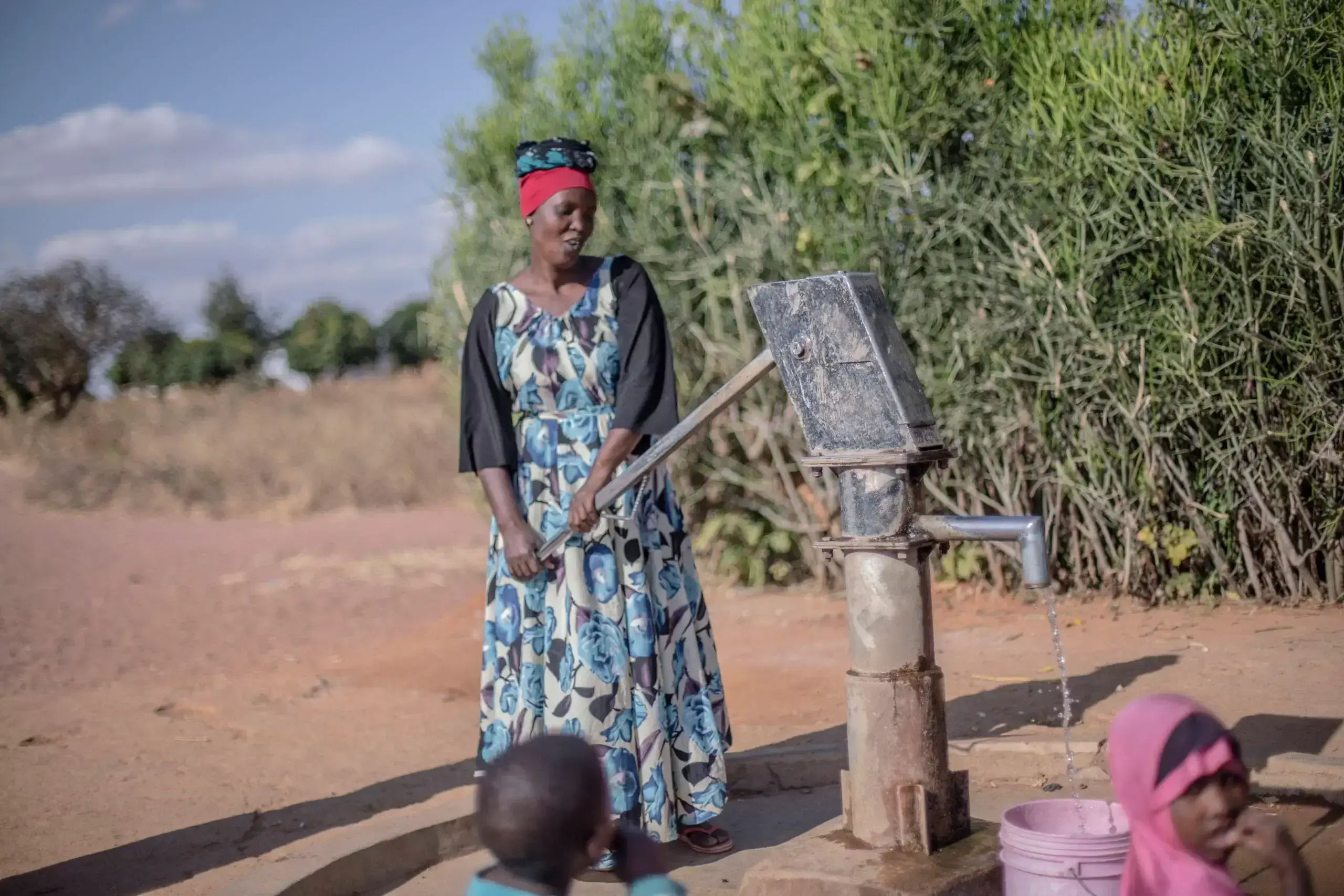
“Especially here in Mikesi, people abandoned the well after it dried out. We are grateful and the community is grateful for the effort made to rehabilitate the well. Now we don’t have to travel a long distance for clean and safe water.”
Jackline Ramadhan
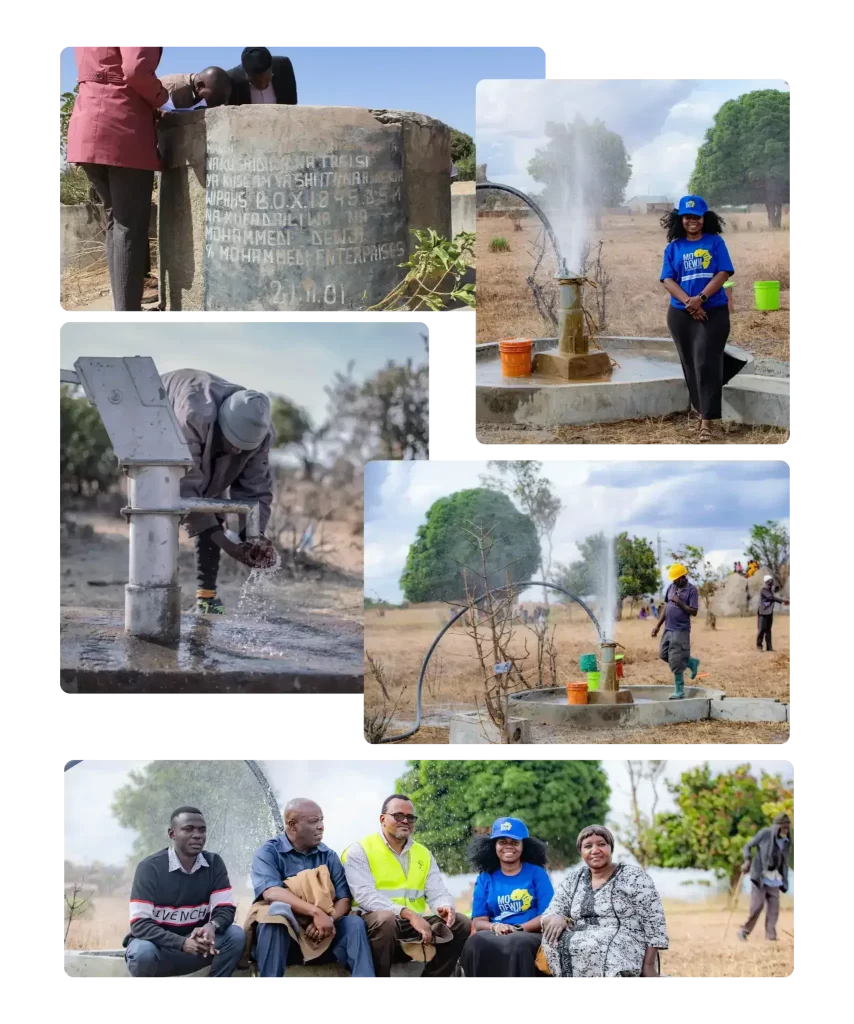
Clean Water for Rural Communities
The Mo Dewji Foundation’s commitment to water access began over a decade ago when founder Mohammed Dewji witnessed the dire water crisis in the Singida region. This pivotal moment inspired Dewji’s dedication to philanthropy, leading to the construction of 45 wells in Singida during his tenure as a Member of Parliament. Despite these efforts, about 4 million people in central Tanzania still lack access to clean water, highlighting the ongoing need for sustainable solutions.
Recognizing that wells require periodic rehabilitation to maintain their functionality, the Mo Dewji Foundation is dedicated to restoring these vital resources. The foundation is currently rehabilitating 19 of the wells constructed by Dewji, ensuring they once again provide clean and safe water. This project not only addresses immediate water needs but also promotes long-term sustainability and community resilience. By revitalizing these wells, the foundation is rekindling hope and improving the quality of life for the people of Singida, underscoring its unwavering commitment to sustainable change and community development.
We BUILD AND MONITOR
Water Wells Inspection with ESTL
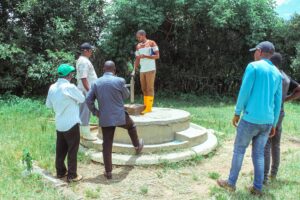 The Non-Governmental Organization that Enables Communities to Change Lives (ESTL) in collaboration with the Mo Dewji Foundation has started an inspection of more than 22 wells built by Mohamed Dewji in 13 wards of Singida Municipality.
The Non-Governmental Organization that Enables Communities to Change Lives (ESTL) in collaboration with the Mo Dewji Foundation has started an inspection of more than 22 wells built by Mohamed Dewji in 13 wards of Singida Municipality.
Watch the episode on Wasafi Media.
ASK US ABOUT OUR WATER PROGRAMS
Frequently Asked Questions
We are deploying a village-centric model. So, any one of the 12,000+ villages in the United Republic of Tanzania is entitled to write to us, and upon validation of a needs assessment, we can start exploring how best to support you!
We encourage support from both individuals and organizations collectively.
None at the moment, but as part of our holistic development program, the management of the water sources will be integrated upon successful delivery and access to clean and safe water.
Yes, we work with Water Authorities, Local Government, and the Ministry of Water to try and be integrated within the national water grid for long-term sustainability.
We currently focus on delivering immediate water needs to communities in need. Long-term sustainability can only be achieved by collaborating more strategically with the Water Authorities and ultimately, the Ministry of water.
